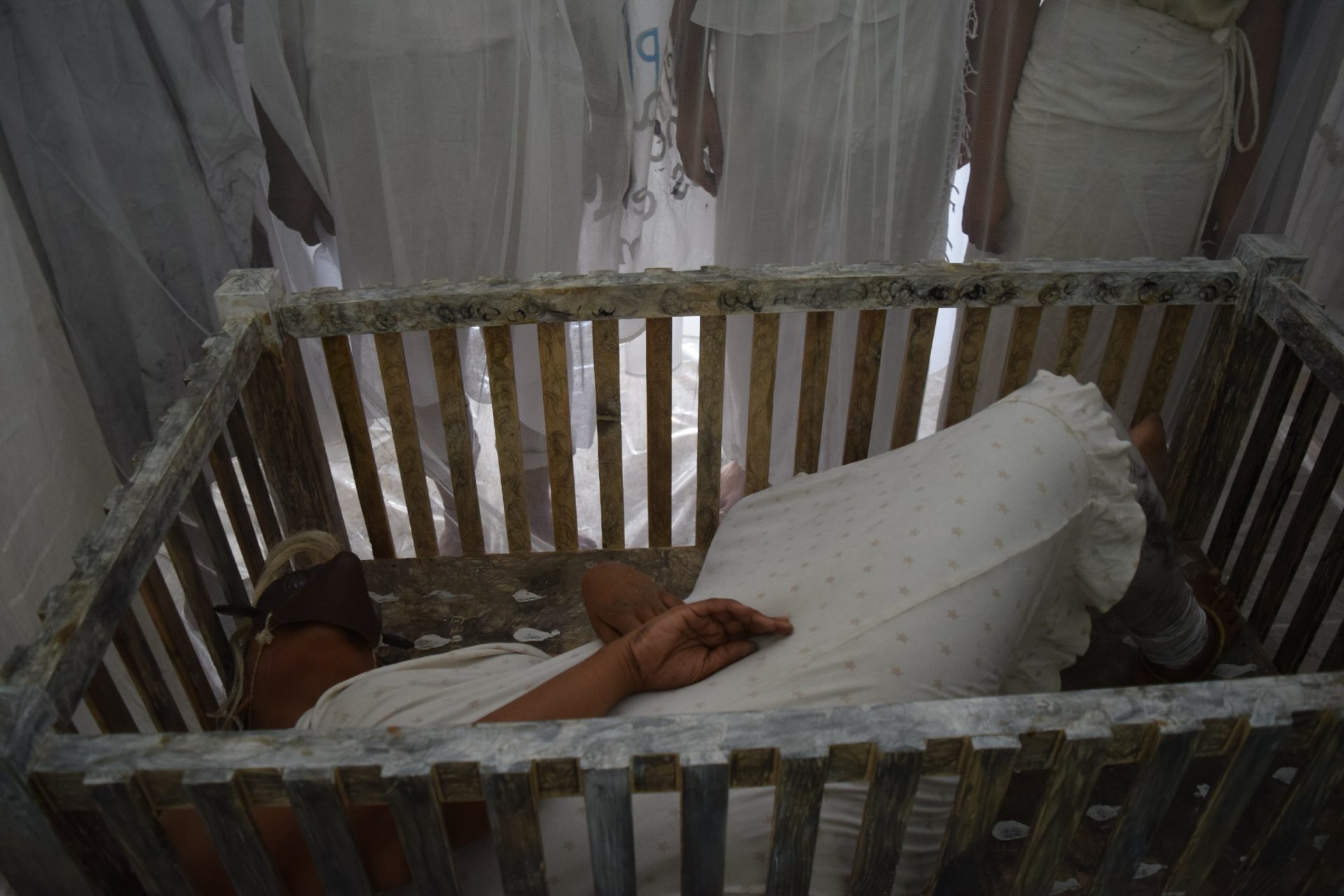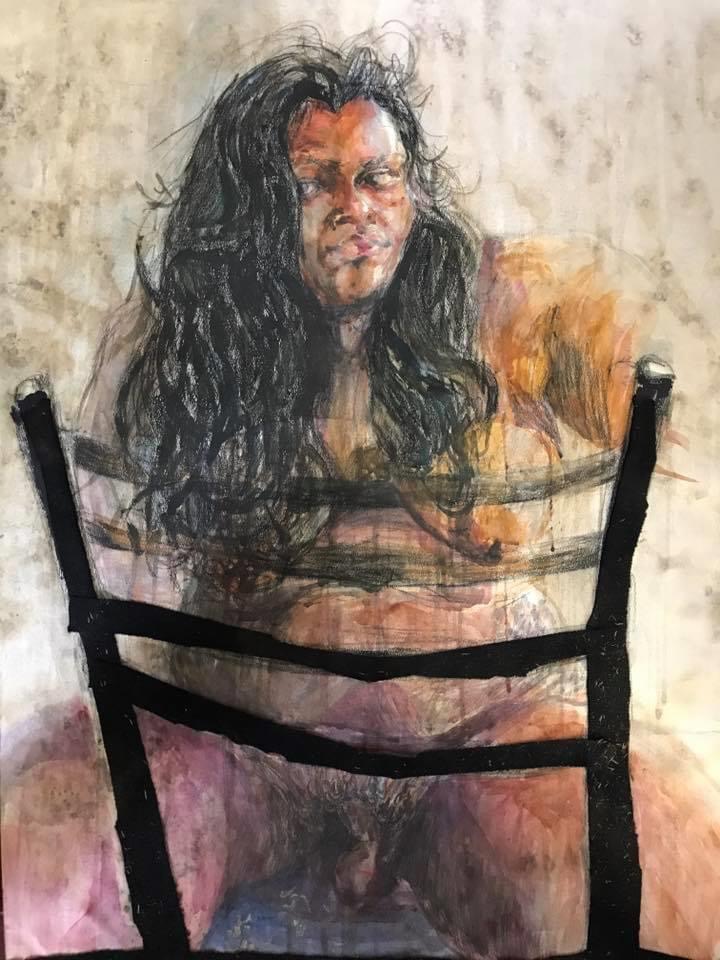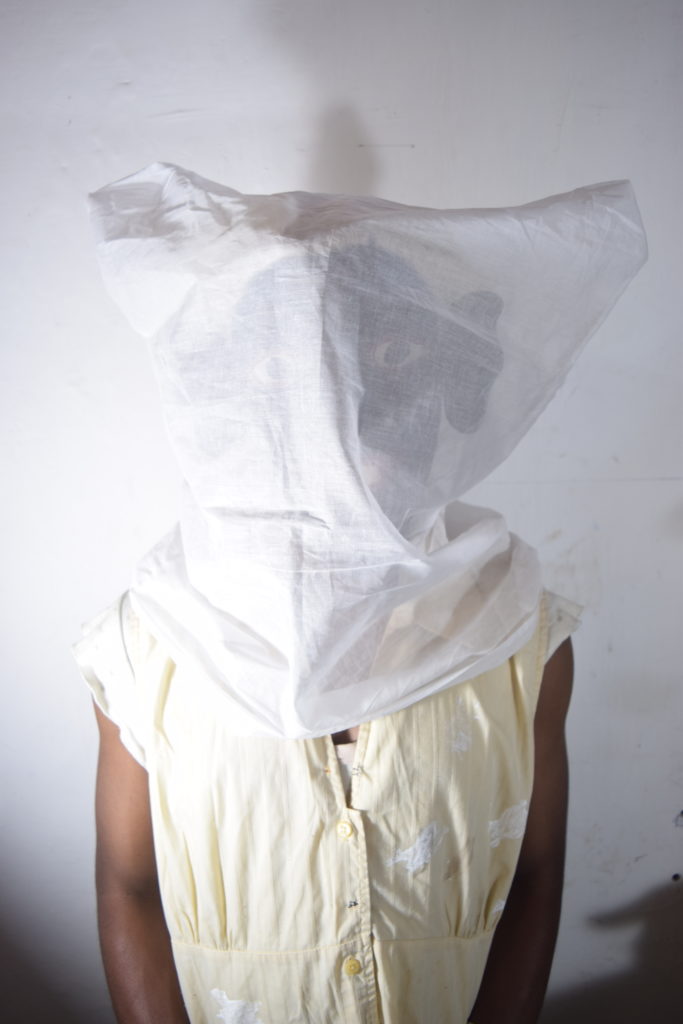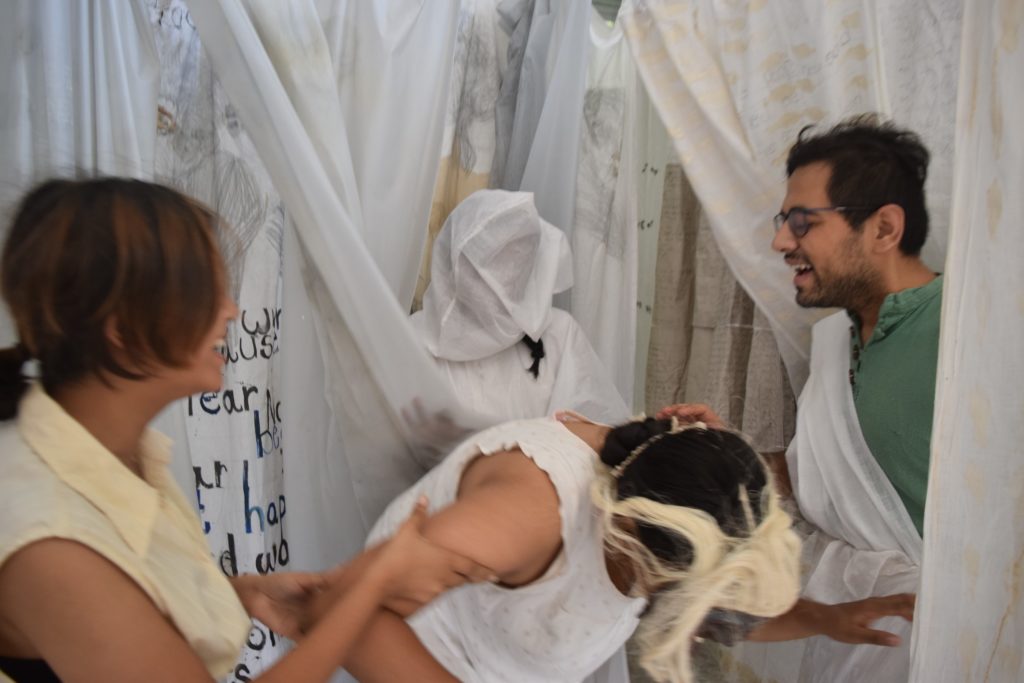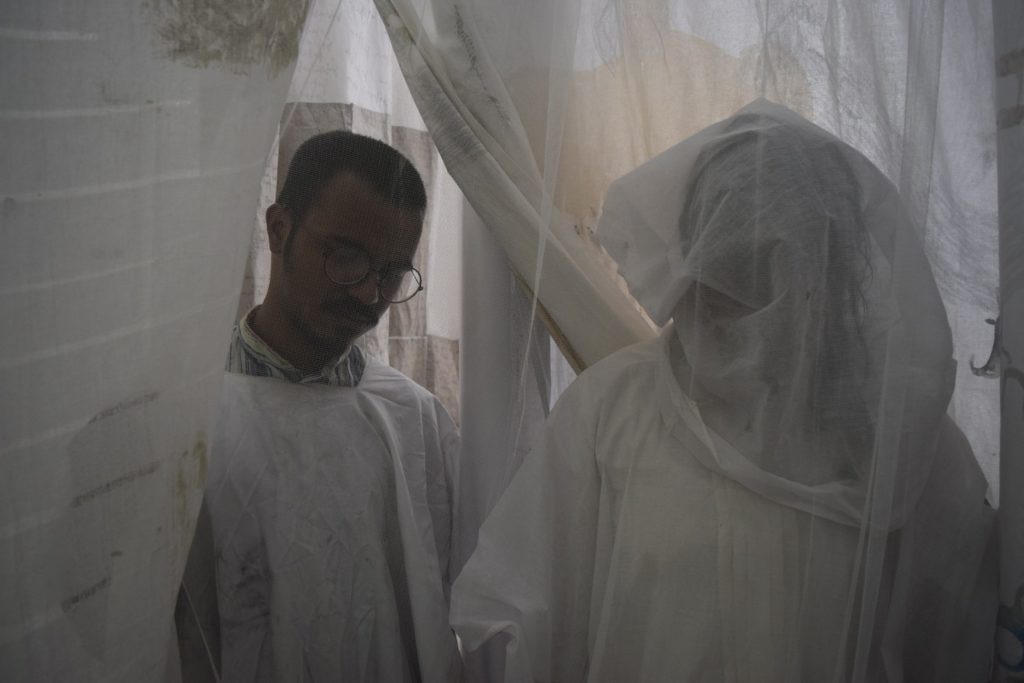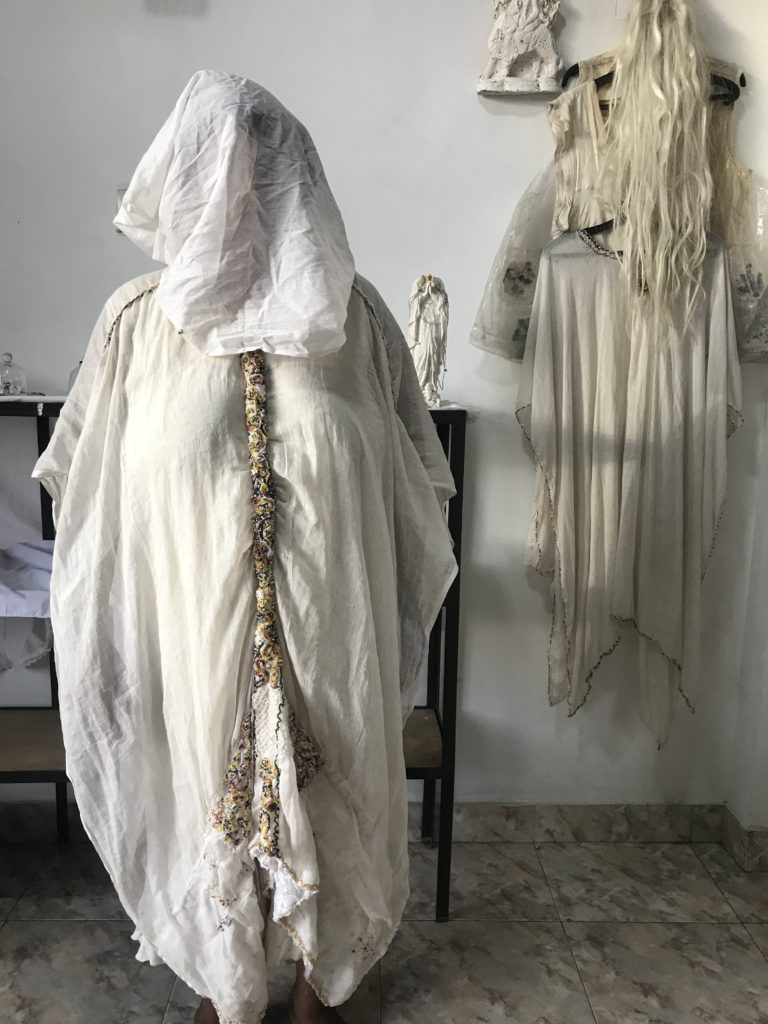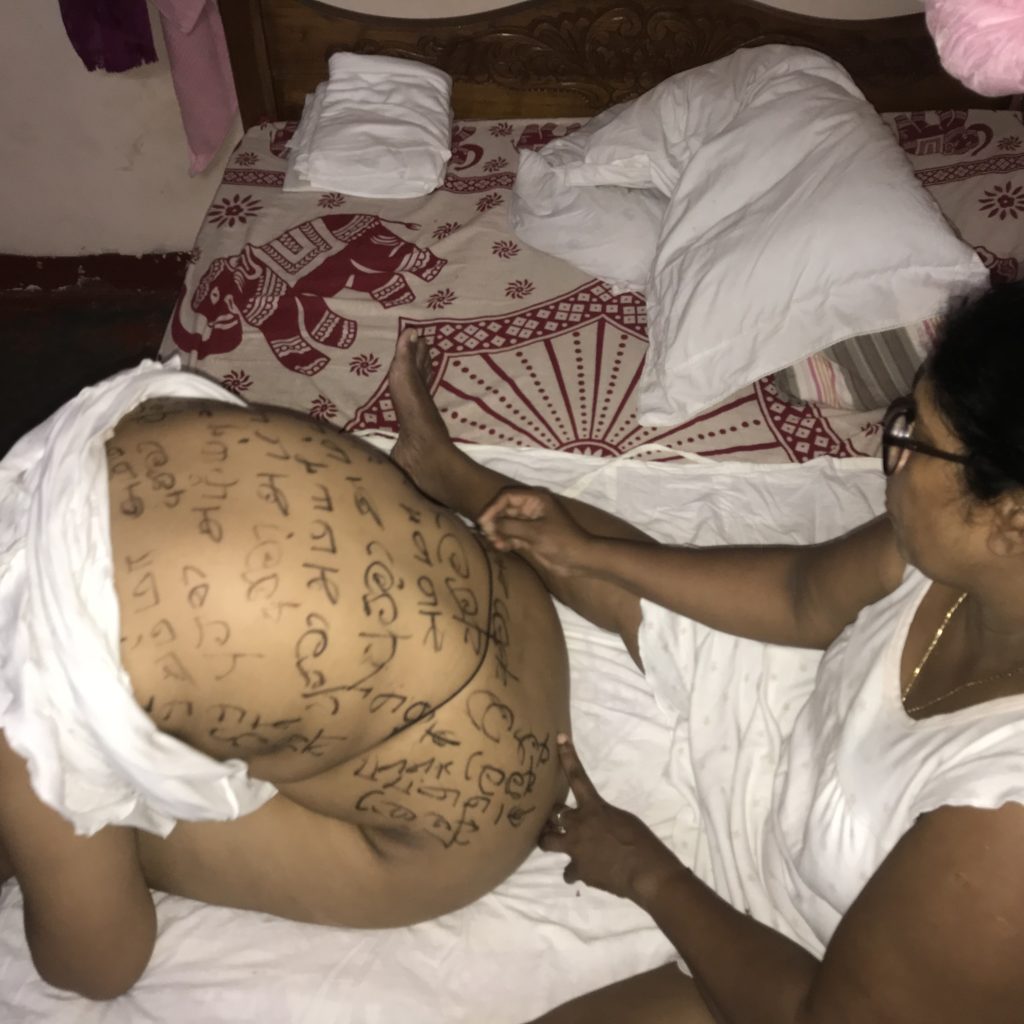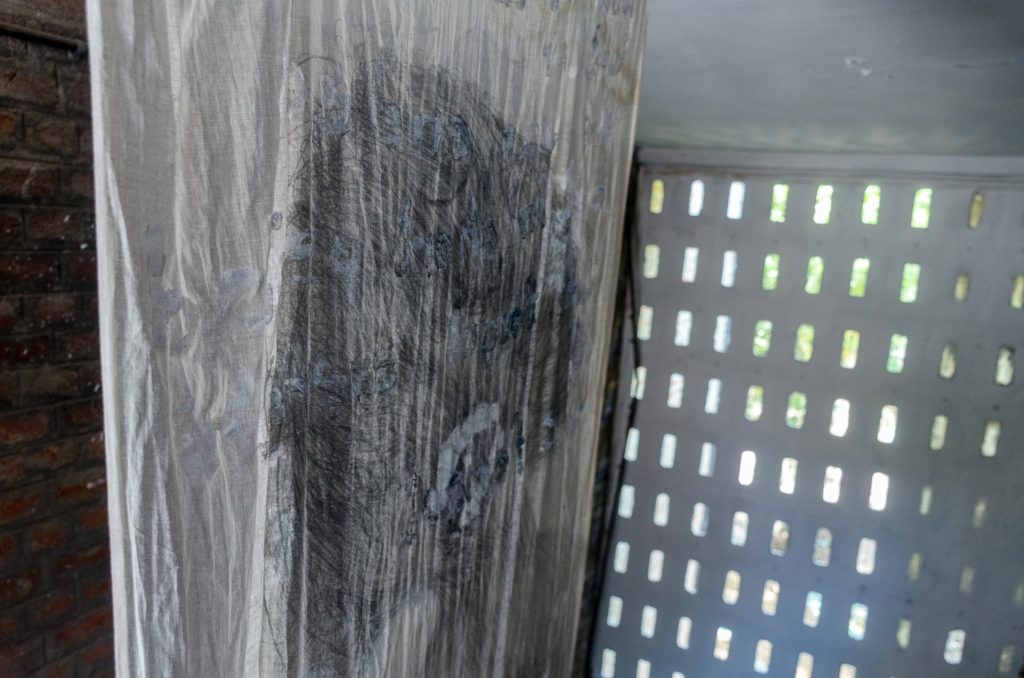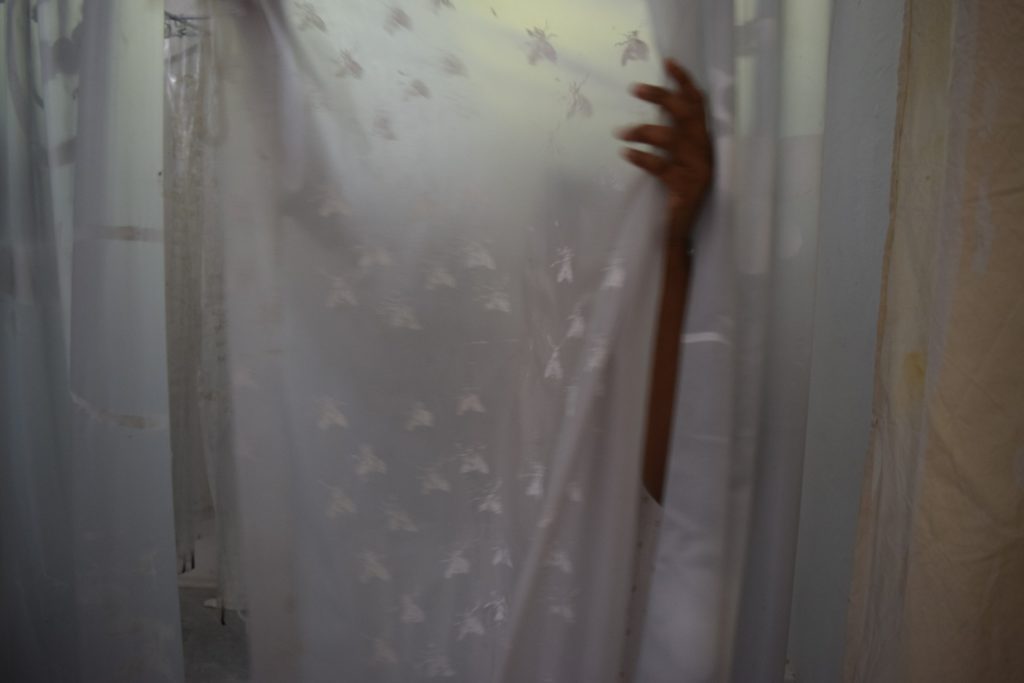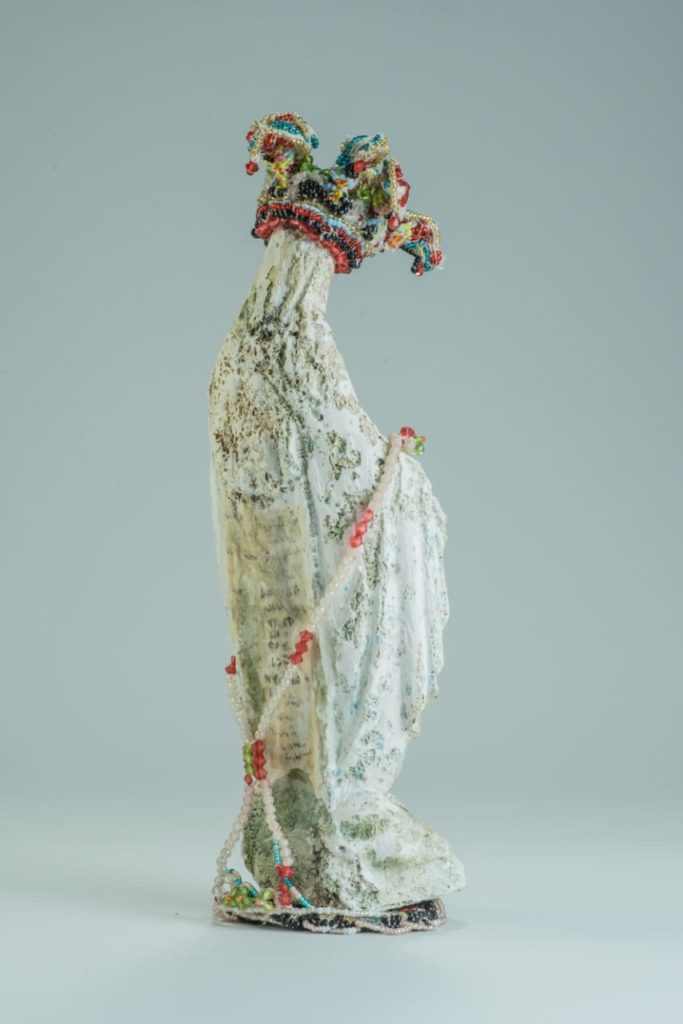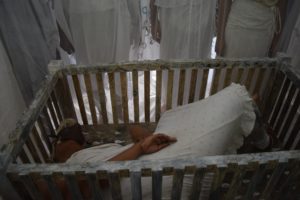
Chathuri Nissansala (b.1993, Colombo) is a multidisciplinary artist working with performance art, painting, sculpture, and graphics. Her works raise poignant questions about notions of gender, class, and nationalism in Sri Lanka. A recipient of the Commonwealth Scholarship, South East Asia by the Indian Council for Cultural Relations, ICCR (2012), Chathuri acquired a Bachelor’s in Fine Arts (Painting) from Chitra Kala Parishath, Bengaluru (2017) and a Master’s in Visual Arts (Painting) from Maharaja Sayajirao University of Baroda, Vadodara (2019).
She has performed and exhibited across Asia, some of these include her solo exhibition ‘Ritualizing the disfigured: Memorials of healing from Sri Lanka’ by Anant Art Gallery, Delhi; Rehang, curated by Uthra Rajgopal and Anant art, Bikaner house, Delhi ( 2021)Responses to Memory, curated by Oorja Garg at Gillehri Arts initiative (2020); 15th Virtual Concert: Celebrating Women’s Month in South Africa, curated by Bernadette Muthien (2020); Umnyama 2020, curated by Pranamita Borgohain and organized by Young Hearts, India (2020); Lock Unlock: Edition 9 organized by Dagmar Glaustnitzer Smith (2020); Webinars organized by Huxxyduxxybox performance art collective including The Action Poetry, curated by Frank Bready Trejo (2020); Be-coming Tree, curated by Jatun Risba, O.Pen, Danielle Imara and Chris Grady (2020) and Performance Art Project: Asia in collaboration with Rah Residency, Iran (2020). She also participated in the Student’s Biennale, Kochi Muziris Biennale, India (2016).
She has participated in various workshops and residences including residency ‘Kal’, a collaboration between a district school at Berlin, Archive books, Goethe Institute Karachi and Colombo; a series of online conversations Chronicles of Confinement, organized by Hector Canonge, New York (2020); Artsathone, organized by British Council, Colombo, Sri Lanka (2019) and Body workshop, facilitated by Nikhil Chopra and Madhavi Ghore, organized by HH Artspace in collaboration with Asia Art Archive and Serendipity Art Foundation, Vadodara (2017).
Currently, she is carrying out her apprenticeship under artist Somapala Pothupitiye and learning the traditional practice of costume-making at Mullegama Art Centre (MAC), Colombo, Sri Lanka.
As a witness to the civil war, gendered oppression, militarization, and human rights violations, my artistic oeuvre is a means of coming to terms with my identity as a third-generation civilian from Sri Lanka. As I revisit, retrieve, and bridge the country’s violent history with its current political instability, my works take the form of narrations that embody the mediums of performance, textile, and sculpture. I scavenge for discarded and disfigured figurines of idols at the sites of bloodshed, perform outlandish characters from the folktales, and stitch for the maligned sculptures and myself, costumes with symbolic patterns from exorcist rituals. Developed under the apprenticeship of Somapala Pothupitiya, the last descendant of the Navandanne caste, skilled in costume-making for curative practices, my textiles merge into my sculptures and performances, extending the possibility of the tradition being redefined in the present domain, blurring the distinction between folk and contemporary art.
Since the formative years of my practice, I have tried to analyze the relationship between the recurring violence in Sri Lanka, the spirit of nationalism, and its troubled relationship with gender. The dissection of the word ‘mother’ as a site of violence, fragmented ideology abused, penetrated, and massacred by the use of words like mother-land, mother-tongue, mother-hood during every round of civil war, mass penalization, and murder continues to haunt my memory. Memorialized and etched into the public consciousness, the word ‘mother’ directs, conforms, and predetermines the role of women in society as an idyllic figure of worship that cannot exist independently.
